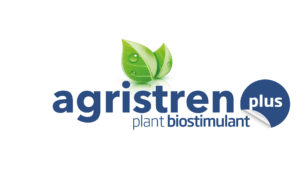Abiotic stress can be defined as stress caused by external, non-biological factors, such as rainfall, high or low temperatures, drought, wind, salinity, soil problems, chemicals, etc. In contrast to biotic stress, which is caused by biological factors, such as diseases caused by pathogens, pests or viruses.
Abiotic stress influences plant metabolism: photosynthesis, respiration, solute transport, translocation, protein synthesis, nutrient assimilation, tissue differentiation, formation of carbohydrates, lipids, plant structural substances and the different stages of crop development, causing significant yield losses.
The importance of combating this type of stress is increasing due to the advance of climate change, which is causing an increase in the severity and frequency of adverse climatic phenomena.
It is worth mentioning that although plants can withstand a certain degree of stress, this will always be detrimental to their development and health, even damaging them. At LIDA we have biostimulants prepared to stimulate natural processes that benefit the growth and responses of plants to different types of stress.
¿How can be prevented?
Agricultural biostimulants increase the tolerance of plants to adverse effects of abiotic stress.
They can prevent abiotic stress by:
- Improving rooting: When starting the cultivation of the plant, the plant’s resistance should be taken into account as early as possible, a better rooted plant is more resistant to stress factors, such as drought or lack of nutrients, among others.
- Controlling the plant’s environment where possible, as this type of stress is related to environmental factors.
- Optimal nutrition: if the crop is fully nourished, resistance to stress will be higher. In addition, certain biostimulants improve the efficiency of nutrient use, contributing to this effect (rooting agents, sap mobilisers, inter- and intracellular transport enhancers, etc.).
- Stimulation of defences against oxidative stress: oxidative stress is the accumulation of substances known as reactive oxygen species (ROS), which oxidise cellular machinery and can even cause tissue death. Enhancing the synthesis of specific enzymes to deal with ROS drastically reduces the damage caused by any stress. Arguably, this gives a general improvement in defences against most stresses.
- Stimulation of specific metabolic pathways: These are metabolic pathways related to specific defences against a specific type of stress, such as heat or salt stress, among others, so that the pathways related to a certain stress are stimulated in a very specific way, allowing greater specialisation of the use of these biostimulants and obtaining greater effectiveness at key times/stresses.
LIDA agricultural biostimulants to combat abiotic stress:
In LIDA Plant Research, we have biostimulants to combat abiotic stress, with more specific products such as Agristren Plus, Primarenc or Norcaren or more general, such as Grainfol Grow in the case of extensive crops, achieving resistant crops.
Agristen Plus has been developed so that the plant maintains its growth rate and production in conditions of water-saline stress. This biostimulant is recommended to accelerate the recovery of the plant after water stress, also for a faster regeneration after possible damage. It should be noted that Agristren Plus increases the assimilation and distribution of mineral nutrients and intensifies the photosynthetic rate.
Primarenc, on the other hand, is a biostimulant developed to adapt the plant to the stress caused by low and high temperatures, cushioning their effect and increasing photosynthetic activity, thanks to the fact that it stimulates specific routes of defence against thermal stress and also provides natural antioxidants, carbohydrates and vitamins.
Norcaren is a biostimulant designed to improve the plant’s defences against abiotic stresses with the exclusive focus on flowering, pollination and fruit set; protecting flowers and newly set fruit from thermal and oxidative stresses that could cause flower malformation, loss of pollen and ovule fertility, embryonic death and fruit drop.
This biostimulant package provides protection against osmotic stress (water-salt), extreme temperatures and temperature fluctuations, and recovery after stressful situations.
On the other hand, within the GRAINFOL RANGE, specialised in extensive crops, we have the biostimulant Grainfol Grow, specifically designed to improve the development of extensive crops.
Its amino acid content also improves the plant’s ability to cope with and recover from stressful situations (cold, heat, drought…) and promotes photosynthesis, increasing the plant’s productive capacity.
If you would like to receive advice from our technical team to combat this type of stress, please contact us








